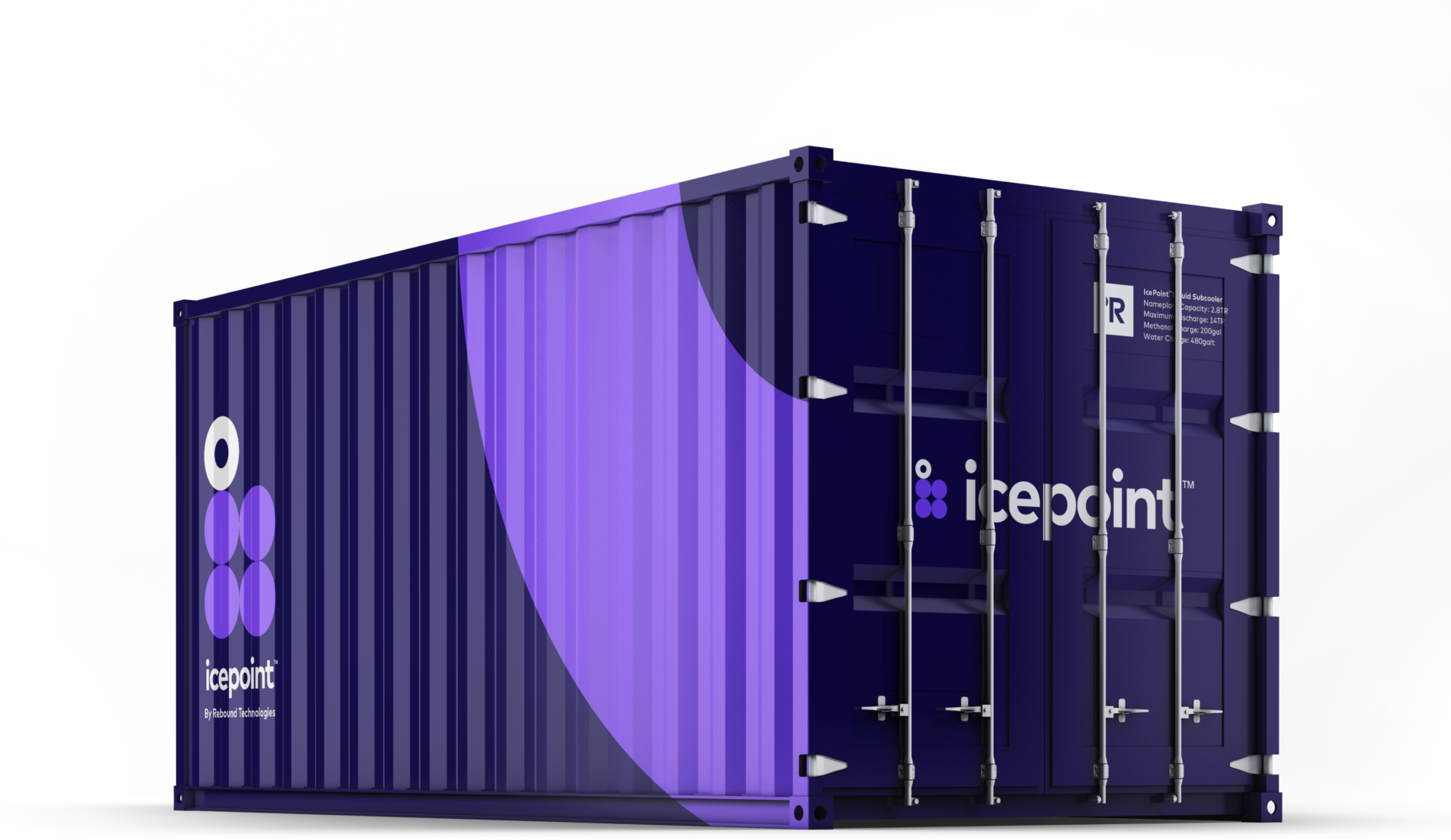Rebound Technologies, a refrigeration technology development firm, has closed a $5 million Series A funding round.
The lead investors were Clean Energy Ventures and Skyview Ventures, with participation from Autodesk Foundation, the philanthropic investing arm of multinational software corporation Autodesk. Rebound Technologies has previously received funding from the National Science Foundation, The US Department of Energy, and a group of seed investors including PRIME Coalition, Closed Loop Ventures, and Investors’ Circle.
Dynamic cooling capacity
Traditional vapor compression cooling systems are the time-tested cornerstone of global cold storage. They all have a static cooling capacity, which means they are only able to generate a fixed amount of cooling over a given time period. That is why refrigerators and air conditioners must continuously cycle on and off to manage a target temperature.
Rebound’s new IcePoint technology is the first solution, the company claims, with a dynamic cooling capacity that gives cooling systems the agility to customize output based on immediate need. As a result Rebound’s system, the team says, provides “unprecedented cooling flexibility, uses significantly less energy than traditional methods, and better-utilizes installed capacity to meet annual cooling needs.”
Diving into greater detail on his company’s technology during a phone interview with AFN while outlining the deal and its 2020 strategy, Rebound’s co-founder and CEO Kevin Davis said that what his company has done is “take advantage of technological advances in controls, heat exchanges, and thermal fluid components.”
What has traditionally stopped rival systems unseating vapor compression from its cold storage throne, said Davis, is that it “has become such an entrenched technology.” The costs of developing a novel system, building it out, and going through the costs and hassle of replacing the old one were never worth it for the sake of 5 percent efficiency savings.
Fr-fr-freezestyling
What is stopping Rebound from falling short like many previous companies trying to transition cold storage systems onto novel technology, according to Davis, is how his company is not focused solely on energy savings; it also puts the spotlight on significant top line revenue growth through the ability to freeze products faster and more efficiently.
Another advantage, Davis said, is that you can install IcePoint as an add-on to assist and streamline existing infrastructure, removing the processing bottle necks that come with trying to freeze things reliably on a large scale. “We’re not saying ‘we’re asking you to rip out your existing cooling structure and replace it,'” he added, stressing their agility and flexibility while noting how his company’s cooling systems could also serve as energy storage — one day, he hopes, that could play a key part in renewable energy smart grids.
Temple Fennell, managing director and co-founder at Clean Energy Ventures, seemed impressed by what this could mean for supply chain cost and energy efficiency and potentially redesigning global storage solutions, in a statement sent to AFN. “Rebound’s breakthrough technology creates a powerful opportunity to improve the freezing efficiency of cooling systems by 35% and potentially prevent 681 MMT of greenhouse gas emissions annually from the cooling sector by 2050,” he said. “The dominant technologies used across cooling applications today are inefficient and ready for major innovation. We see a very promising future for Rebound, whose unique scientific and technological achievement is well-positioned to fundamentally transform an industry projected to increase three-fold to $600 billion by 2027.”
Fennell, in an article published Thursday for GreenBiz, also noted how the global cold chain is “dominated by less than 20 companies.” He wrote how they are “investing heavily in finding and integrating innovative solutions into their infrastructure,” while singling out Lineage Logistics and Americold Logistic as two major incumbents, as well as end-users such as Walmart, that are “actively engaging with innovative technology companies seeking to optimize logistics.”
The early-stage companies in this space Fennell mentioned (which could pivot into competition for Rebound) were “Viking Cold, which lowers energy costs with a control system of eutectic plates; Axiom, which provides advanced sensors and control systems; and SmartSense, which uses the internet of things to monitor facilities and provide supply chain visibility.”
Emerging market demand for frozen foods
In an accompanying statement, Matt Coleman of Skyview Ventures saw further cause for optimism in the world’s rising demand for frozen foods. “The global frozen food market is growing rapidly at 4.3 percent CAGR through 2025 based on increased demand in emerging countries as well as a desire for convenience among millennials. Significant infrastructure improvements for food processors and cold storage companies is a result of these trends,” he said. “We see a massive opportunity to design new facilities around Rebound’s IcePoint technology and retrofit existing facilities to realize increased product throughput while providing material operational savings.” (Cold storage and rapid freezing would also stand to gain in the rise of plant-based proteins, many of which are distributed as frozen products.)
Underscoring the urgent global need for a technological rethink like Rebound’s was Joe Speicher, executive director at Autodesk Foundation: “Food manufacturers and cold storage logistics companies use the same technology that was invented 100 years ago,” he said. “This comes with high capital and operating costs – as well as carbon emissions. Rebound’s solution can help companies lower up-front costs, reduce maintenance and ultimately, use less electricity. That’s good for customers and the planet.”
Rebound will use the new capital to install its first industrial-scale systems with food manufacturers and cold storage logistics companies in North America. Initially installed in combination with existing cooling systems, Rebound’s dynamic cooling capacity will improve moisture control and rapid-freezing capabilities while also lowering energy costs.
Any views on the latest and greatest in refrigerator tech? Let us know at [email protected]





